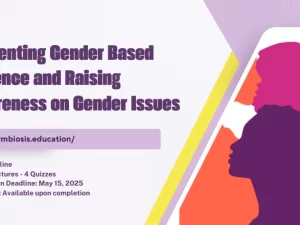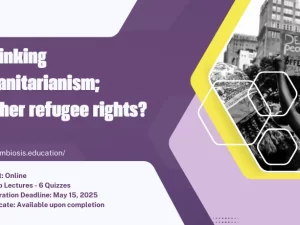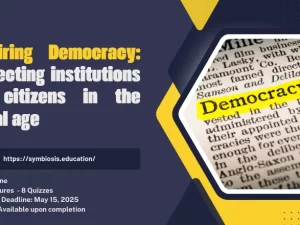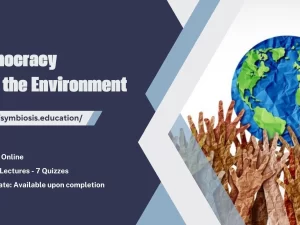Countering Hate Speech
- Description
- Curriculum

This course offers a structured and in-depth look at the phenomenon of hate speech, its root causes, and its damaging impact on individuals and communities. It explores how hate speech manifests in both online and offline environments, and how it undermines democratic values, human rights, and social cohesion. The course introduces key concepts, international standards, and practical tools used by institutions, educators, activists, and communities to recognize and address hate speech effectively, with content designed to support learning and reflection across different contexts.
Participants will gain a clear understanding of how to identify different forms of hate speech and explore practical, rights-based strategies to challenge it in everyday life. By the end of the course, learners will be empowered to take informed action—whether in schools, workplaces, public spaces, or online—to promote dialogue, protect human dignity, and contribute to more cohesive and resilient societies
-
1Countering hate speech - Ljubisa Vrencev
This course delves into the urgent and complex issue of hate speech, particularly in the digital realm, and its intersection with fake news and disinformation. Participants will explore how hate speech contributes to discrimination, marginalization, and violence, threatening social cohesion and the well-being of communities. The course examines the role of online platforms in amplifying these harmful narratives and the challenge of balancing freedom of expression with regulation. Emphasis is placed on the importance of media literacy and digital citizenship in countering hate speech, equipping learners with practical tools to foster a more informed, responsible, and inclusive online environment.
-
2Quiz
-
3Council of Europe standards on combating hate speech - Dezideriu Gergely
This course explores the Council of Europe’s standards for combating hate speech, emphasizing the organization’s significant role in addressing this issue. Participants will examine both legal and non-legal measures designed to protect individuals and groups from hate speech. Special attention is given to the harmful impact of stereotypes, particularly those targeting vulnerable communities such as the Roma. The course also underscores the importance of education, public awareness, and victim support as essential tools in the fight against discrimination.
-
4Quiz
-
5Sexism and sexist hate speech - Cécile Gréboval
This course examines the issue of sexism and sexist hate speech as systemic problems that undermine gender equality and human rights. It explores the harmful impact of sexist stereotypes and hate speech on women, particularly in online spaces, and how these contribute to exclusion, harassment, and barriers to participation in public and democratic life. The course highlights key disparities such as the gender pay gap, underrepresentation of women in decision-making roles, and limited visibility in the media. Participants will learn about comprehensive measures to address these challenges, including legal frameworks, reporting procedures, media literacy initiatives, and international cooperation aimed at combating sexist hate speech and promoting gender equality in both online and offline environments.
-
6Quiz
-
7Breaking the Chains of Hate Empowering Gender Equality in the Fight Against Hate Speech - Nicole Petalidou
This course explores how hate speech intersects with gender equality, focusing on how societal power dynamics, stereotypes, and patriarchal norms disproportionately target women and LGBTQ+ individuals. It examines the specific challenges posed by online hate speech and the concept of intersectionality, showing how overlapping identities amplify discrimination. Participants will learn strategies to challenge these harmful narratives through education, inclusive language, and open dialogue, aiming to foster equality both online and offline.
-
8Quiz
-
9Unveiling the Rainbow Tackling Hate Speech against the LGBTQI+ Community - Apostolos Karabairis
This course examines the challenges faced by the LGBTQI+ community in relation to hate speech, focusing on how harmful narratives and discrimination are spread through various platforms. It explores the role of different groups in perpetuating negative stereotypes and fostering an environment of exclusion, including the rise of subtle prejudices like micro-aggressions. Participants will learn about the need for legal, political, and social responses to combat hate speech, as well as the importance of promoting inclusivity and creating a supportive environment for all.
-
10Quiz
-
11Hate speech online identification, reporting and related challenges - Maryna Manchenko
This course explores the complexities of hate speech, highlighting the challenges of identifying, reporting, and addressing it across diverse legal frameworks within the European Union. It examines how hate speech often disguises itself through symbols, alternative spellings, and subtle language, making it difficult to detect and remove. Beyond the digital realm, participants will discover how hate speech extends into public spaces and educational settings, impacting society at large. The course provides practical strategies to address hate speech, encouraging proactive approaches to create more inclusive and supportive environments.
-
12Quiz




